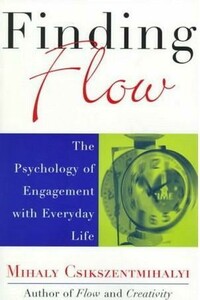. Cambridge: MIT Press, 2010, 159–178.
Dweck C.S. Motivational processes affecting learning.American Psychologist. 1986, 41(10), 1040–1048. doi:10.1037/0003-066X.41.10.1040.
Emmons R.A. Abstract versus concrete goals: Personal striving level, physical illness, and psychological well-being.Journal of Personality and Social Psychology. 1992, 62(2), 292–300. doi:10.1037/0022–3514.62.2.292.
Jackson S.A. Toward a conceptual understanding of the flow experience in elite athletes.Research Quarterly for Exercise and Sport. 1996, 67(1), 76.
Jackson S.A., Csikszentmihalyi M.Flow in sports: The keys to optimal experiences and performances. Champaign: Human Kinetics, 1999.
National Institutes of Health. Mindfulness meditation reduces pain, bypasses opioid receptors. 2016. NCCIH Research Blog: https://nccih.nih.gov/research/blog/mindfulness-meditation-pain.
Smith E.R., Mackie D.M.Social psychology.3rd ed. Hove: Psychology Press, 2007.
Stavrou N.A., Jackson S.A., Zervas Y., Karteroliotis K. Flow experience and athletes’ performance with reference to the orthogonal model of flow.The Sport Psychologist. 2007, 21(4), 438–457.
Sugiyama T., Inomata K. Qualitative examination of flow experience among top Japanese athletes.Perceptual and Motor Skills. 2005, 100(3), 969–982.
Tang Y., Ma Y., Wang J., Fan Y., Feng S., Lu Q., … Posner M.I. Shortterm meditation training improves attention and self-regulation.Proceedings of the National Academy of Sciences of the United States of America. 2007, 104(43), 1715217156. doi:10.1073/pnas.0707678104.
Ullen F., de Manzano O., Almeida R., Magnusson P.K.E., Pedersen N.L., Nakamura J., Csikszentmihalyi M., Madison G. Proneness for psychological flow in everyday life: Associations with personality and intelligence.Personality and Individual Differences.2011, 52, 167–172.
Yerkes R.M., Dodson J.D. The relation of strength of stimulus to rapidity of habit-formation.Comparative Neurology and Psychology.1908, 18, 459–482.
Chapter 3
Csikszentmihalyi M., Rathunde K.R., Whalen S., Wong M.Talented teenagers: The roots of success and failure. N.Y.: Cambridge University Press, 1993.
Csikszentmihalyi M.Finding flow: The psychology of engagement with everyday life. N.Y.: Basic Books, 1997.
Dietrich A., Sparling P.B. Endurance exercise selectively impairs prefrontal-dependent cognition.Brain and Cognition. 2004, 55(3), 516–524. doi:10.1016/j.bandc.2004.03.002.
Dietrich A., Stoll O. Effortless attention, hypofrontality, and perfectionism. In: B. Bruya (Ed.),Effortless attention: A new perspective in the cognitive science of attention and action.Cambridge: MIT Press, 2010, 159–178.
Dweck C. S. Motivational processes affecting learning.American Psychologist. 1986, 41(10), 1040–1048. doi:10.1037/0003-066X.41.10.1040.
Elliot A.J., Gable S.L., Mapes R.R. Approach and avoidance motivation in the social domain.Personality and Social Psychology Bulletin.2006, 32, 378–391.
Goldberg L.R. An “Alternative description of personality”: The big-five factor structure.Journal of Personality and Social Psychology.1990, 59(6), 1216–1229.
Hanson R.Hardwiring happiness: The new brain science of contentment, calm, and confidence. N.Y.: Crown Publishing, 2013.
Hudson N.W., Fraley R.C. Volitional Personality Trait Change: Can People Choose to Change Their Personality Traits?Journal of Personality and Social Psychology.2015, 109(3), 490–507. http://dx.doi.org/10.1037/pspp0000021.
Jackson S.A., Roberts G.C. Positive performance states of athletes: Toward a conceptual understanding of peak performance.The Sport Psychologist. 1992, 6(2), 156–171.
McCrae R.R., Costa P.T.J.Personality in adulthood. N.Y.: Guilford, 1990.
Smith E.R., Mackie D.M.Social psychology.3rd ed. Hove: Psychology Press, 2007.
Strachman A., Gable S.L. What you want (and do not want) affects what you see (and do not see): Avoidance social goals and social events.Personality and Social Psychology Bulletin.2006, 32, 1446–1458.
Ullеn F., de Manzano O., Almeida R., Magnusson P.K.E., Pedersen N.L., Nakamura J., Csikszentmihalyi M., Madison G. Proneness for psychological flow in everyday life: Associations with personality and intelligence.







